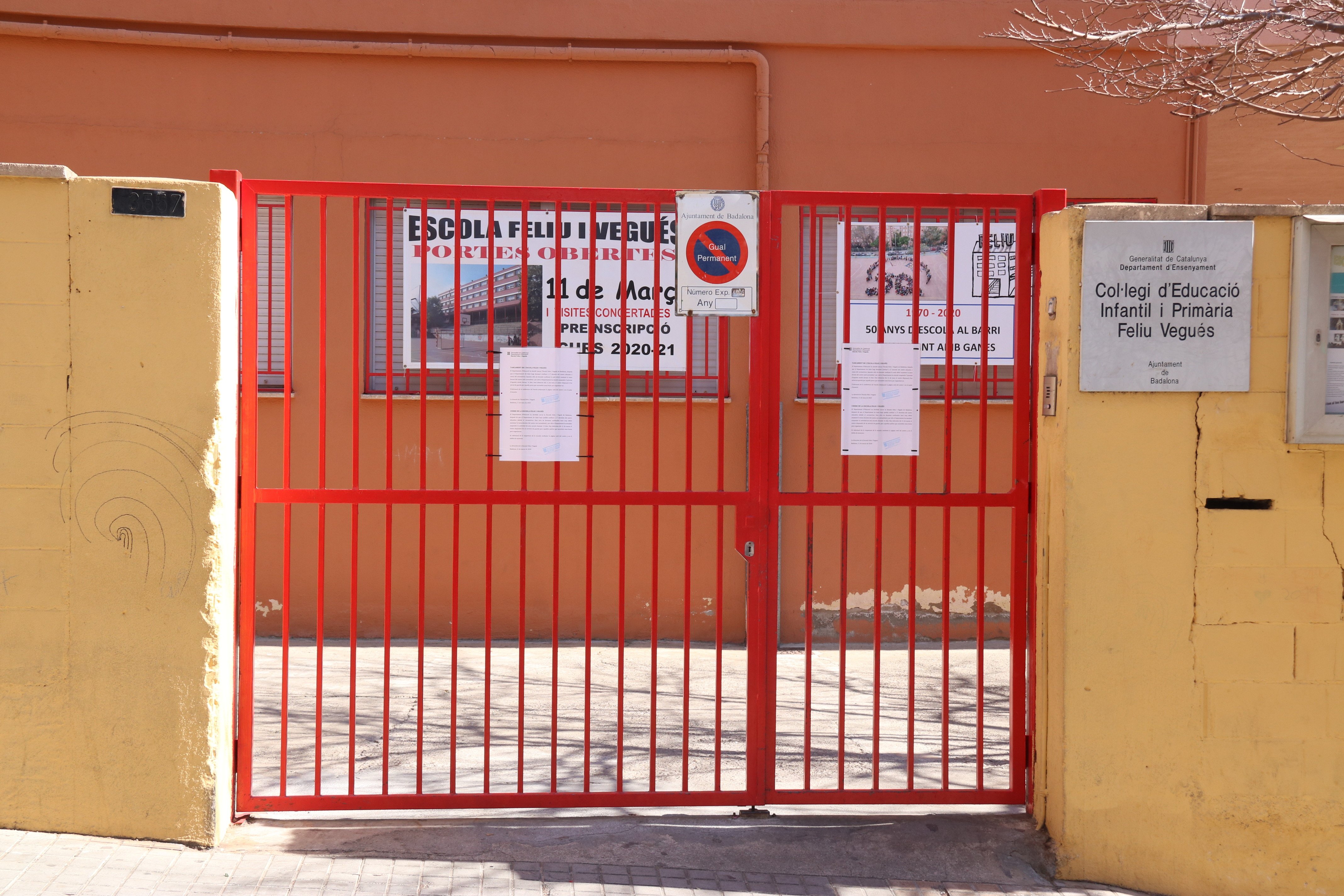From this Friday and for the next two weeks, in Catalonia there will be no face-to-face classes at any level of the education system: primary schools, secondary schools and universities will stay closed. This is the drastic decision the Catalan government has made to tackle the spread of coronavirus. While it was initially intended that this general closure of schools would begin on Monday, the decision has in the end be made to move it forward and it will start within hours.
The announcement was made by the Catalan president Quim Torra this Thursday at midday. It is expected to affect around 1.5 million students. School pre-enrolment, due to begin on March 23rd, will also be disrupted. The intention of the Catalan education ministry is to guarantee that education will be able to continue at a distance using virtual technology.
"We have to reduce the rhythm of the country to contain the pandemic and avoid the health system from becoming overwhelmed," said Torra. "I have no doubt that with individual responsibility and with the shared effort and solidarity of everyone, we will succeed, if we are together and united," he added.
This is the latest development in Catalonia of a global health crisis that continues to evolve rapidly. There are now 260 people infected with the coronavirus in Catalonia, with 80 new cases confirmed today (another 44% increase, like yesterday) and in the entire Spanish state, the figure is close to 3,000. Eighty-four deaths of people infected with the virus in Spain have now been recorded.
Since Wednesday, Catalonia has been in alert status in response to the Covid-19 crisis. Catalonia is the autonomous community in Spain with the third highest number of people infected, only behind Madrid (which has 1,388 cases) and the Basque Country (346). Both of those regions, as well as in La Rioja, which has 205 confirmed cases, have already taken measures with regard to school closures, and the Catalan educational community has been conveying its concern on the question to the administration for days.
"We're seeing how it is important to anticipate future situations that are predictable", said health minister Vergés. "It is predictable that we are going to have an increase of cases in our country which is going to put the health system under stress", she said. For that reason it was necessary to "reduce the rhythm" in order to have the capacity that was required. "We need to cut the paths of transmission of the virus, to ensure that the people who get sick, and the people who are vulnerable in Catalonia, can be cared for."
There was not an order to keep children inside, said Vergés. "Obviously kids will be able to go to the park with their parents, but as we've been explaining, when you come back, you all need to wash your hands well, and take the other precautions we've been explaining, such as avoiding places where there are agglomerations of people."
Even before the blanket closure comes into force, there are thousands of Catalan students and teachers affected by various local closures. Most of them, almost forty centres, are in Igualada and its surroundings - Jorba, Santa Margarida de Montbui, Vilanova del Camí and Òdena.
Esade business school has also suspended all classroom activity after discovering a case of coronavirus, a student who had to be hospitalized. The cancellation of classes will be maintained at least until March 30th and sessions will continue online.
In addition, there are seven other centres that have closed their gates. The first was the Gràcia municipal nursery school in Barcelona, where a female worker had tested positive. The same occurred at a public language school in El Prat, near Barcelona airport, where one of the teachers is infected. The teachers' fifteen work colleagues were sent home. The same situation has occurred at SEK Catalunya, a private international school at La Garriga, north of Barcelona, and at the Le Mas Blanc agricultural school at La Guingueta d'Ix, in Northern Catalonia.
Three primary schools - Feliu i Vegués in Badalona, Mas Boadella in Sabadell and Bernat Metge in El Prat - had had to close their doors because most of their teachers were self-isolating.

